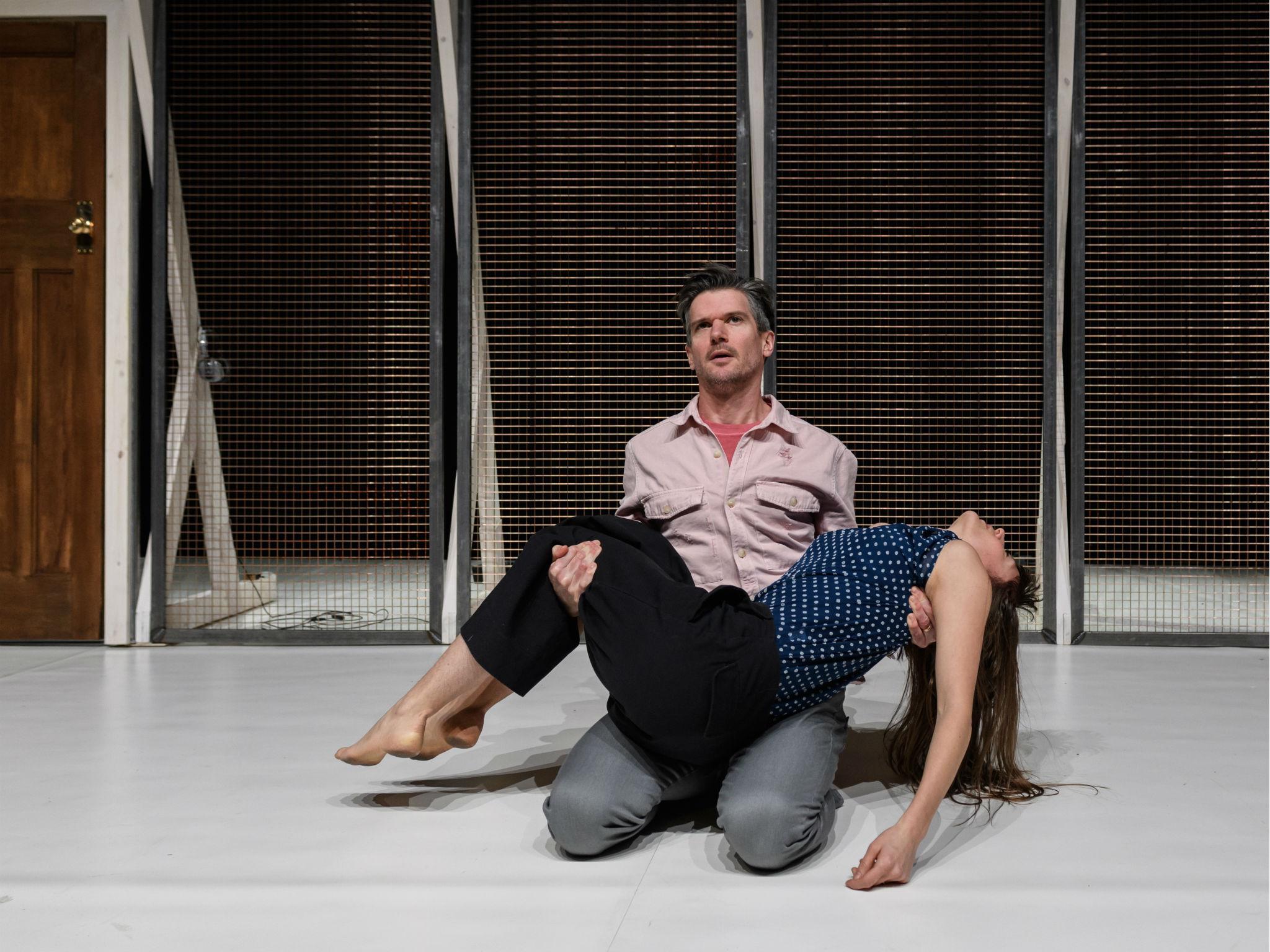Juliet and Romeo: A Guide to Long Life and Happy Marriage, Battersea Arts Centre, London, review: A glorious mix of speech, dance and comedy
Romeo and Juliet have survived into adulthood and are having a mid-life crisis in Ben Duke's show, 'Juliet and Romeo: A Guide to Long Life and Happy Marriage'

“Do we have to keep doing this? I hate coming home and finding you dead in different parts of the flat.” In Lost Dog’s dance duet, Romeo and Juliet have survived into adulthood and midlife crisis, still trying to live up to their own reputation for romantic love. In a glorious mix of speech, dance and comedy, Ben Duke and Solène Weinachter dig into the mess of relationships and memories.
Comic awkwardness tipping into vulnerable emotion is a hallmark of Ben Duke’s work. Juliet and Romeo follows his award-winning one-man show, Paradise Lost (lies unopened beside me), retelling a classic in ways that both deromanticise it and focus on its emotional power.
The show is set up as a therapy performance. Now 40ish, Juliet and Romeo are having problems. They’ve tried sweat lodges and couples’ massage and counselling, and think telling an audience about it all might help. Going over their memories, they reenact scenes from their past, both in a modern setting and with scraps of Shakespearean dialogue and smartly chosen pop songs.
At first, it leans on the familiar romantic comedy pattern of everyman hero and more presentable heroine. Duke’s hilarious teenaged Romeo is allowed to be messier and more ridiculous than Weinachter’s fierce Juliet; he’s the one who forgets the details, who makes more mistakes. As the story goes on, she pushes into darker territory, exhausted by her baby and tempted by an extramarital affair.
The urge to reenact comes from Juliet. She loves being “the real Juliet”, adores Shakespeare’s version (the writer turned up with a large bottle of whisky and questions; Romeo thinks he may have overshared). He has more doubts, doesn’t know how to tell her he was changing his mind about killing himself. As they bicker over the storytelling, we can see the fissures in their relationship.
There’s a real tenderness alongside the comedy. The first time we hear the song “Ain’t No Mountain High Enough”, it’s a duet in which they comfort each other at a bleak time. Standing close, they go through tiny, nuzzling movements that open out into dance, full of warmth and intimacy. Later, the same song plays after a bitter argument, with a gaping lack of connection. Reliving the past, they confront their mistakes – but there’s no guarantee that that will help to fix them.
Until 24 February (lostdogdance.co.uk)
Join our commenting forum
Join thought-provoking conversations, follow other Independent readers and see their replies
Comments